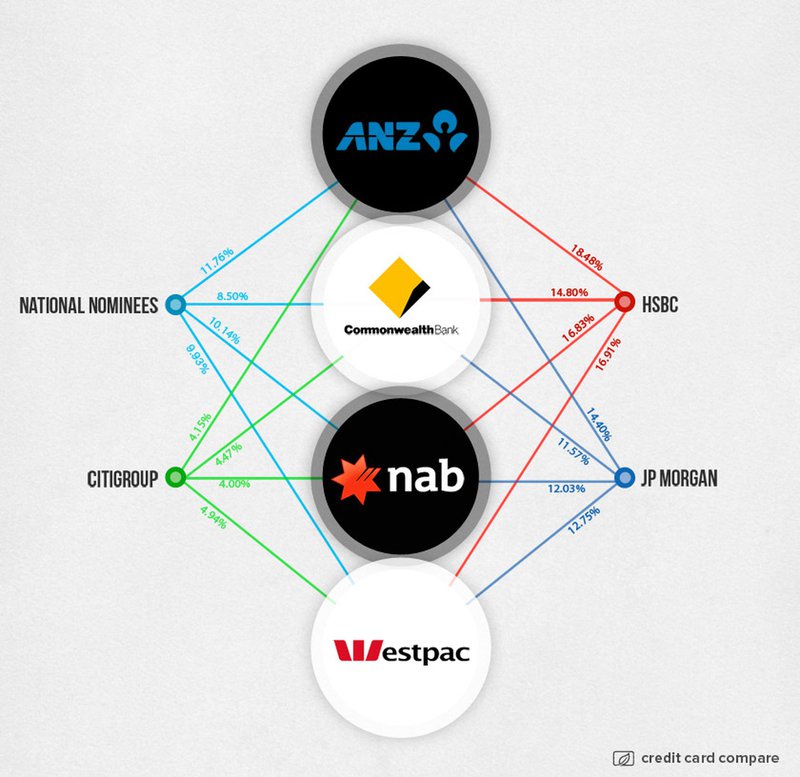I recently answered a Quora post where someone had talked as a side issue about New Zealand's banks being owned in Australia. This is not quite correct. New Zealand's banks are apparently owned in Australia, but Australia's banks are actually largely owned by financial companies based in the USA.
For example, the ANZ bank, New Zealand's largest bank, is "61 per cent owned by US shareholders with just 17 per cent of shares held in Australia" (Dann, 2018). "Westpac is 58 per cent US owned with 22 per cent held by Aussie shareholders" (Dann, 2018). The ASB and BNZ too are "dominated by US shareholders with Australia a distant second" (Dann, 2018).
This has been laid out graphically by Andrew Boyd (2020), as follows:
It is extremely useful to see just where our money goes: to JP Morgan, to CitiGroup, and to the HSBC.
Sam
References
- Boyd, A. (4 August 2020). Who really owns Australia's Big Four banks?. https://finty.com/au/research/big-four-ownership/
- Boyd, A. (4 August 2020). Big Four banks. https://finty-au.s3.amazonaws.com/images/big_4_banks.width-800.jpg
- Dann, L. (31 August 2018). Who really owns our banks?. https://www.nzherald.co.nz/business/who-really-owns-our-banks/ZTAJ6KOSCCOKOZXXKLZDD7LST4/




